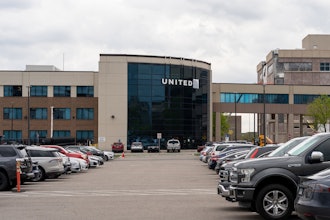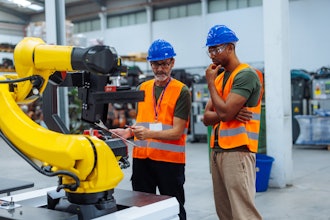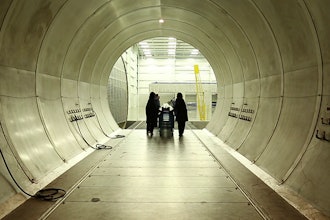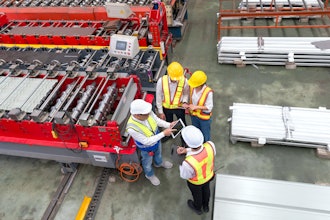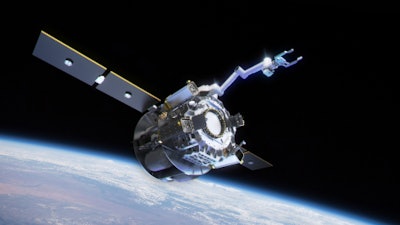
Siemens Digital Industries Software announced that Space Machines Company (SMC), an Australian space on-orbit services and logistics startup, has used the Siemens Xcelerator portfolio of industry software to design and build the Optimus Orbital Servicing Vehicle. One of the largest commercial spacecrafts being designed, manufactured and assembled in Australia, is in development at the University of Technology Sydney’s Tech Lab.
The 270kg Optimus will be launched by a SpaceX rocket from the U.S. to help taxi commercial satellites into their orbital paths around Earth and beyond – providing roadside assistance to satellites orbiting in space. Optimus’ main purpose will be to service, maintain, repair and extend the life of other satellites on orbit.
 Space Machines Company is using solutions from the Siemens Xcelerator as a Service portfolio of industry software to design, simulate and manufacture its Optimus Orbital servicing Vehicle to provide in-space transportation and logistics services.Space Machines Company
Space Machines Company is using solutions from the Siemens Xcelerator as a Service portfolio of industry software to design, simulate and manufacture its Optimus Orbital servicing Vehicle to provide in-space transportation and logistics services.Space Machines Company
SMC is using NX software for design and modeling, Simcenter software for thermo-mechanical elements simulation and analyses and Teamcenter X software as a service (SaaS) for cloud-based Product Lifecycle Management (PLM), which has helped reduce costs and time, while delivering productivity gains for teams working on Optimus.
Alongside from the design and manufacturing phase, SMC’s hardware and software undergo rigorous testing phases which calls for a robust PLM system. Teamcenter X helps with everything from quick design changes, running simulations and validation, through to manufacturing and final assembly – using Siemens’ comprehensive digital twin.
“Space is one of the most innovative industries in Australia right now. Siemens software in enabling organizations of all sizes to innovate and develop solutions that will ultimately play a critical role in our daily lives,” said Samantha Murray, Vice President and Managing Director, Siemens Digital Industries Software, Australia and New Zealand. “I’m proud to see how Space Machines have used our software to push the boundaries of space logistics and get to the forefront of Australia’s space industry. As the space industry scales up and becomes part of a powerful ecosystem, software is the key enabler that helps level the playing field for all.”
 Samantha Murray, Vice President and Managing Director, Siemens Digital Industries Software, Australia and New Zealand (left) and Rajat Kulshrestha, CEO, Space Machines Company (right)Space Machines Company
Samantha Murray, Vice President and Managing Director, Siemens Digital Industries Software, Australia and New Zealand (left) and Rajat Kulshrestha, CEO, Space Machines Company (right)Space Machines Company

















